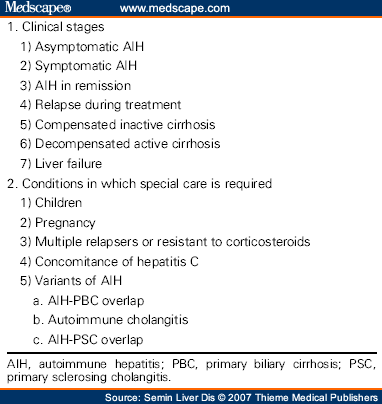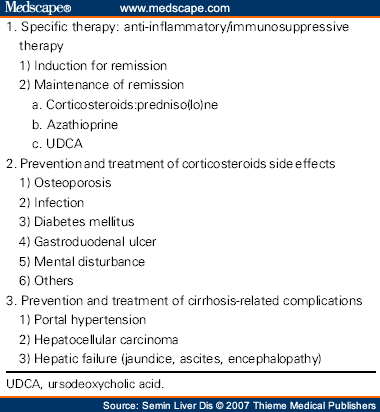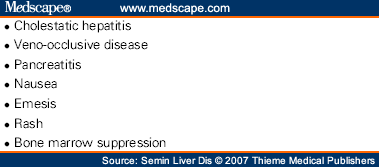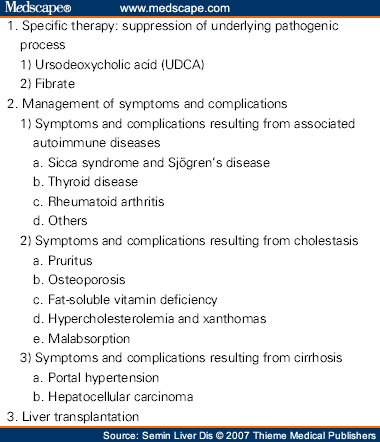Abstract and Introduction
The principle of therapy for chronic inflammatory liver diseases is the removal of causal agents. For autoimmune liver diseases, however, total removal of causal agents and immune cells is impossible. Therefore, autoimmune liver diseases are presently treated by suppression of the immune response. Autoimmune hepatitis is characteristically responsive to corticosteroids, often used in combination with azathioprine to obtain a steroid-sparing effect. For primary biliary cirrhosis, ursodeoxycholic acid is safe and is the first choice for treatment. Treatment of this autoimmune liver disease should also address various symptoms and complications arising from any associated autoimmune diseases, particularly cholestasis and cirrhosis-related complications. For primary sclerosing cholangitis there are no established immunomodulatory therapies, but medical, endoscopic, and surgical treatments are applicable to this disease. Liver transplantation becomes indicated during the eventual end stages of each of these immune-mediated liver diseases.
Liver damage can be caused by a variety of agents including biological, chemical, and physical factors. Continuous existence of these causal agents leads to the chronic inflammation of the liver after the initial inflammatory and immunological response. Therefore, the therapy for chronic inflammatory liver diseases is removal of these causal agents. For chronic viral hepatitis such as hepatitis B and C, hepatitis viruses should be eliminated by antiviral agents such as nucleoside analogues for hepatitis B virus and interferon for hepatitis C virus. For drug-induced liver injury or alcohol-related liver diseases, cessation of taking causal agents, namely drugs for drug-induced liver injury or alcohol for alcohol-related liver diseases, is important. For metabolic disorders such as nonalcoholic fatty liver diseases, amelioration of the metabolic condition is important in reducing liver damage.
For autoimmune liver diseases, however, the nature and range of initiating agents are still unknown and, moreover, the immune responses are directed against autoantigens that are impossible to remove. Therefore, autoimmune liver diseases are treated by countering pathogenic immune responses.
Semin Liver Dis. 2007;27(2):214-226. © 2007 Thieme Medical Publishers
Cite this: Guidelines for Therapy of Autoimmune Liver Disease - Medscape - Feb 01, 2007.












Comments